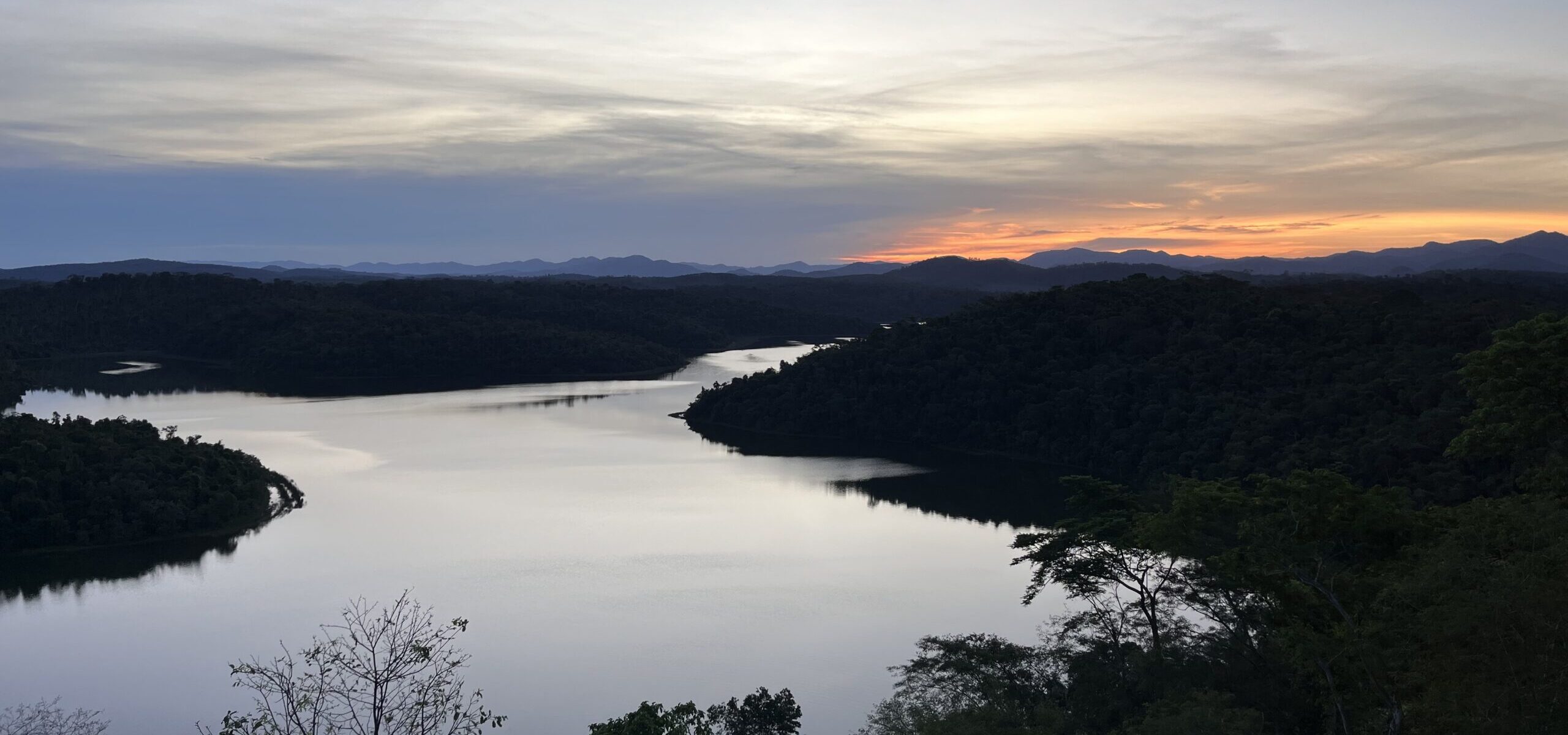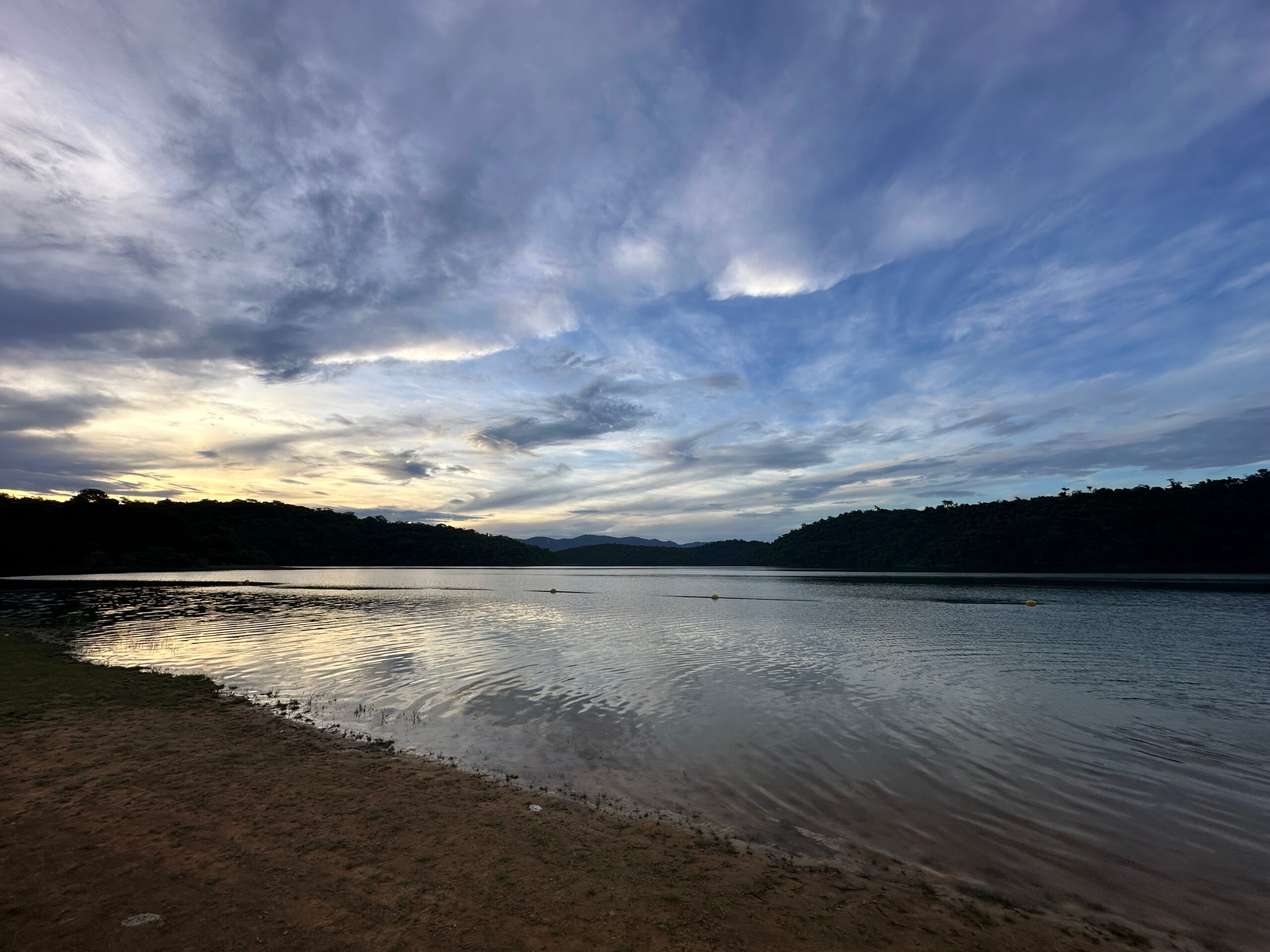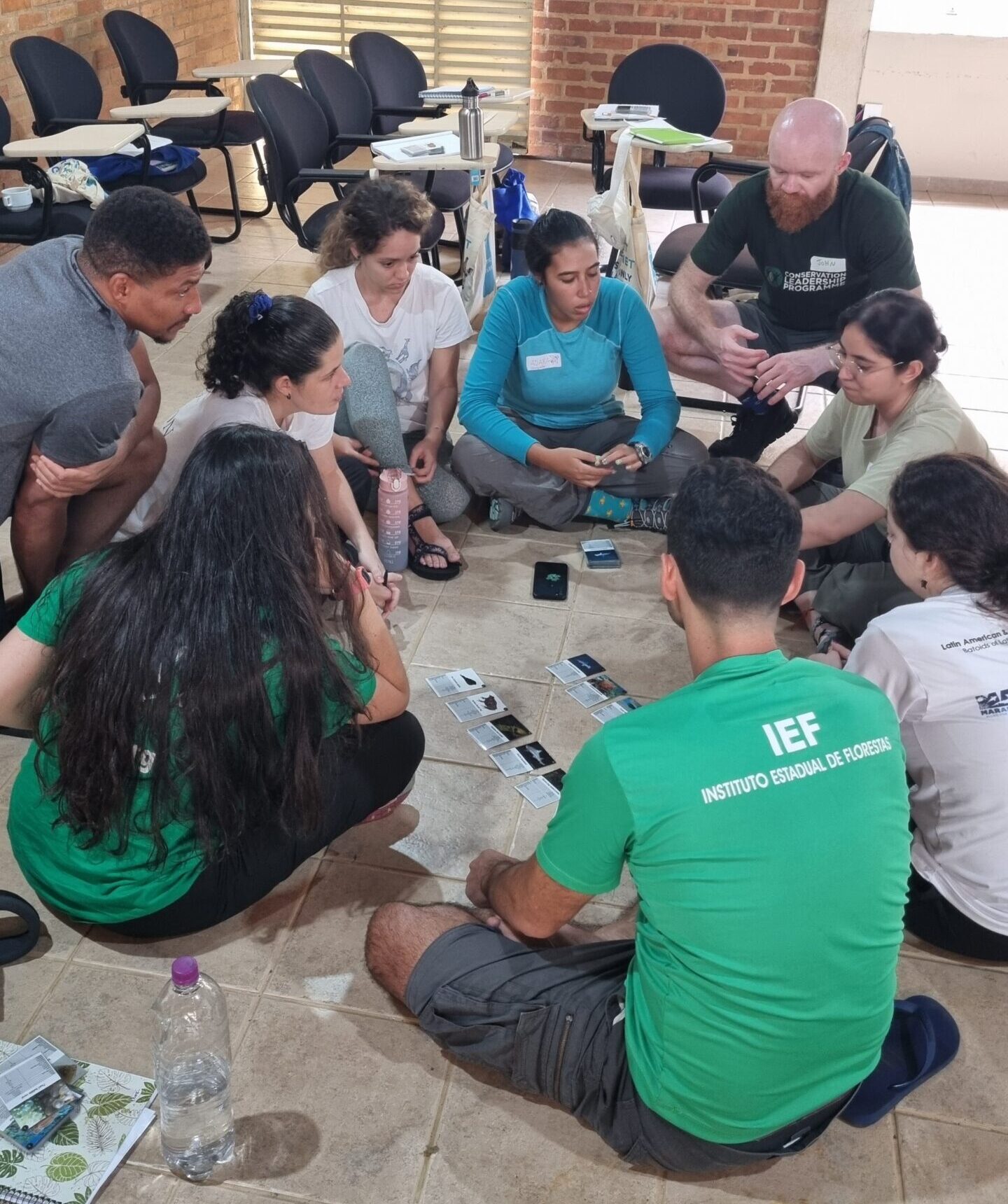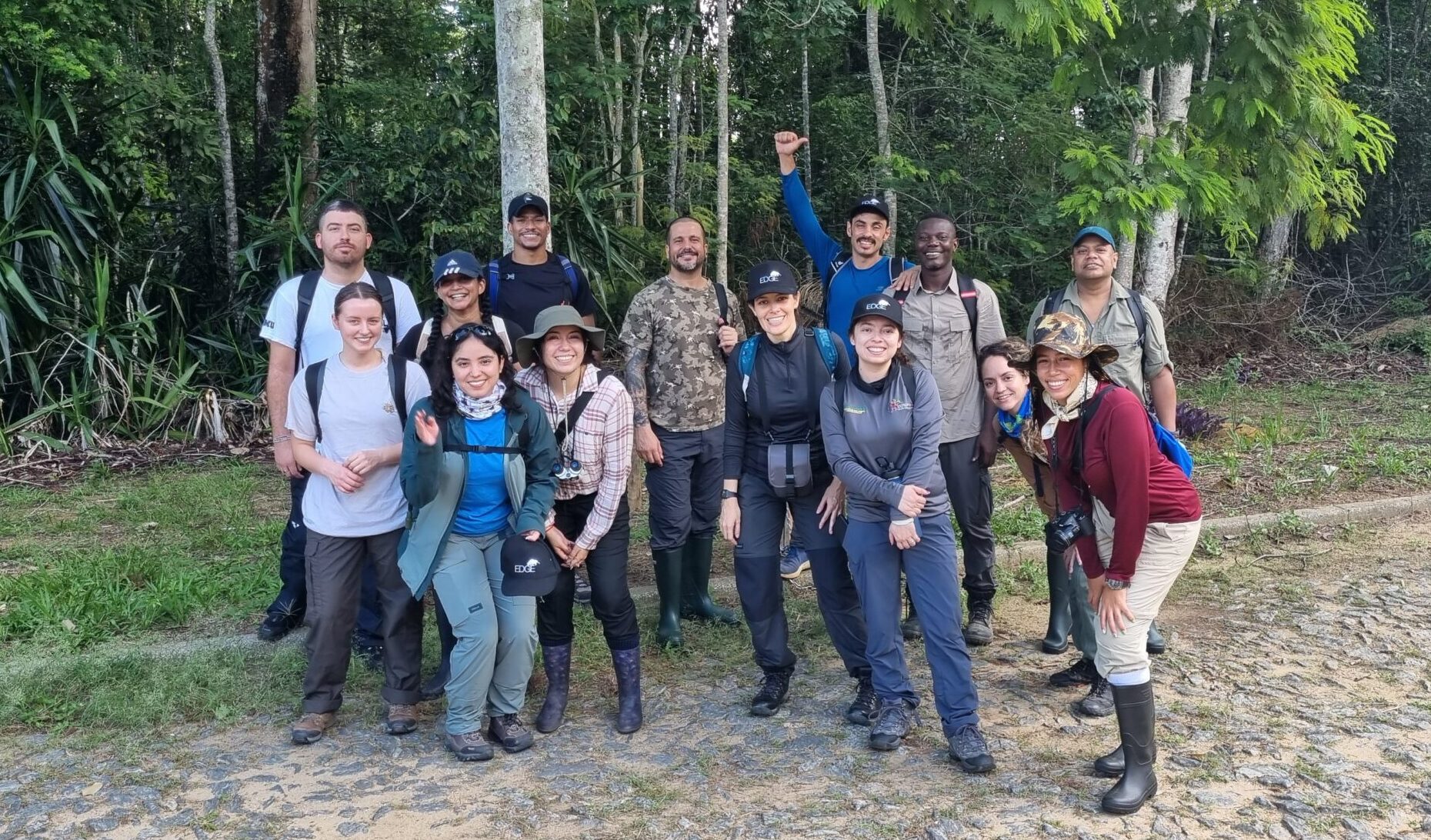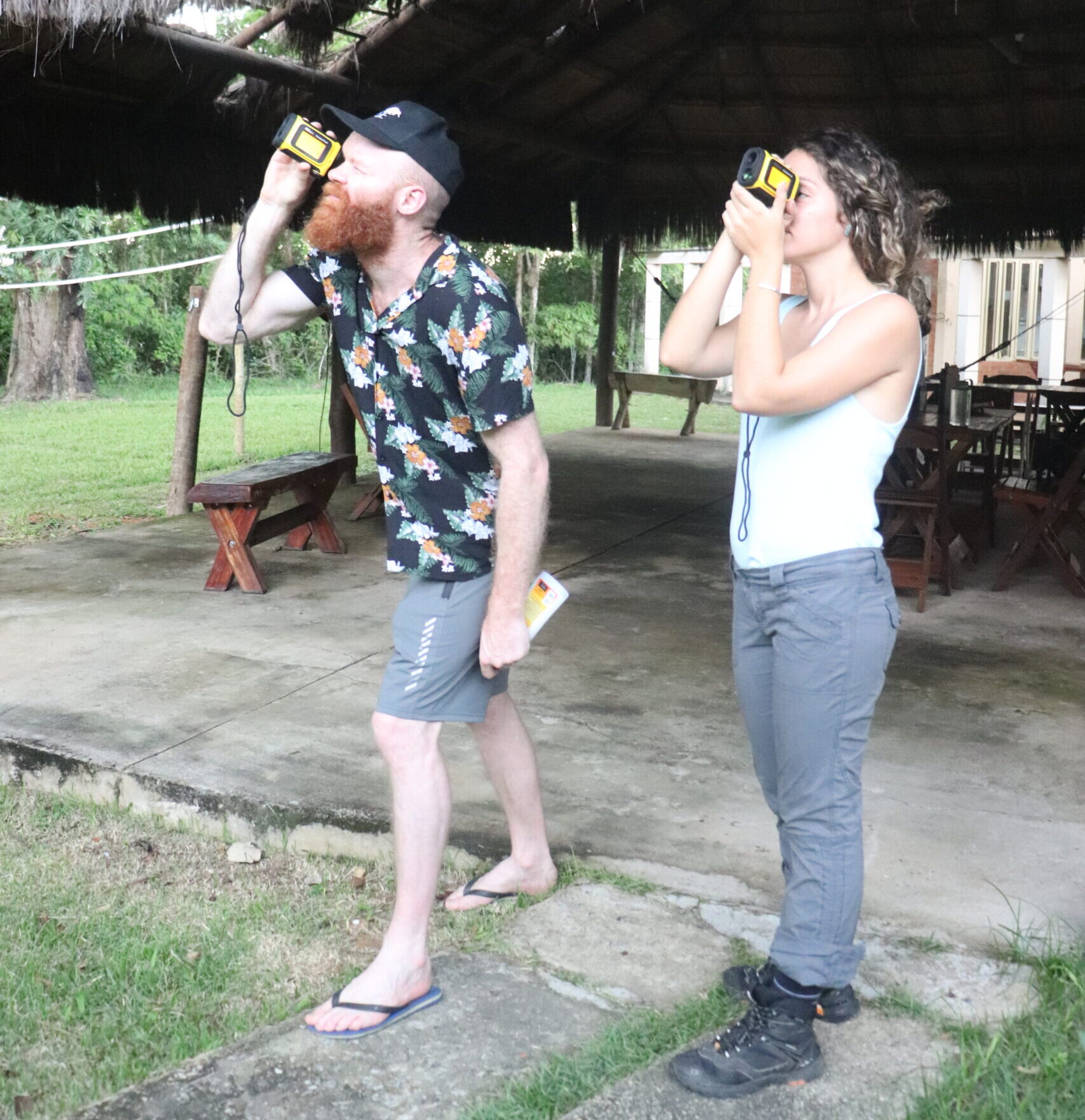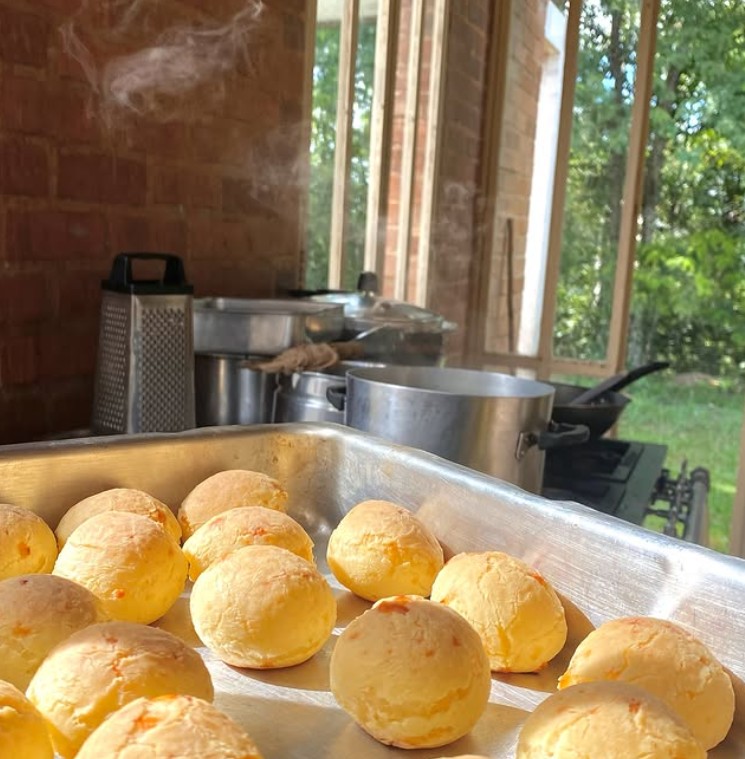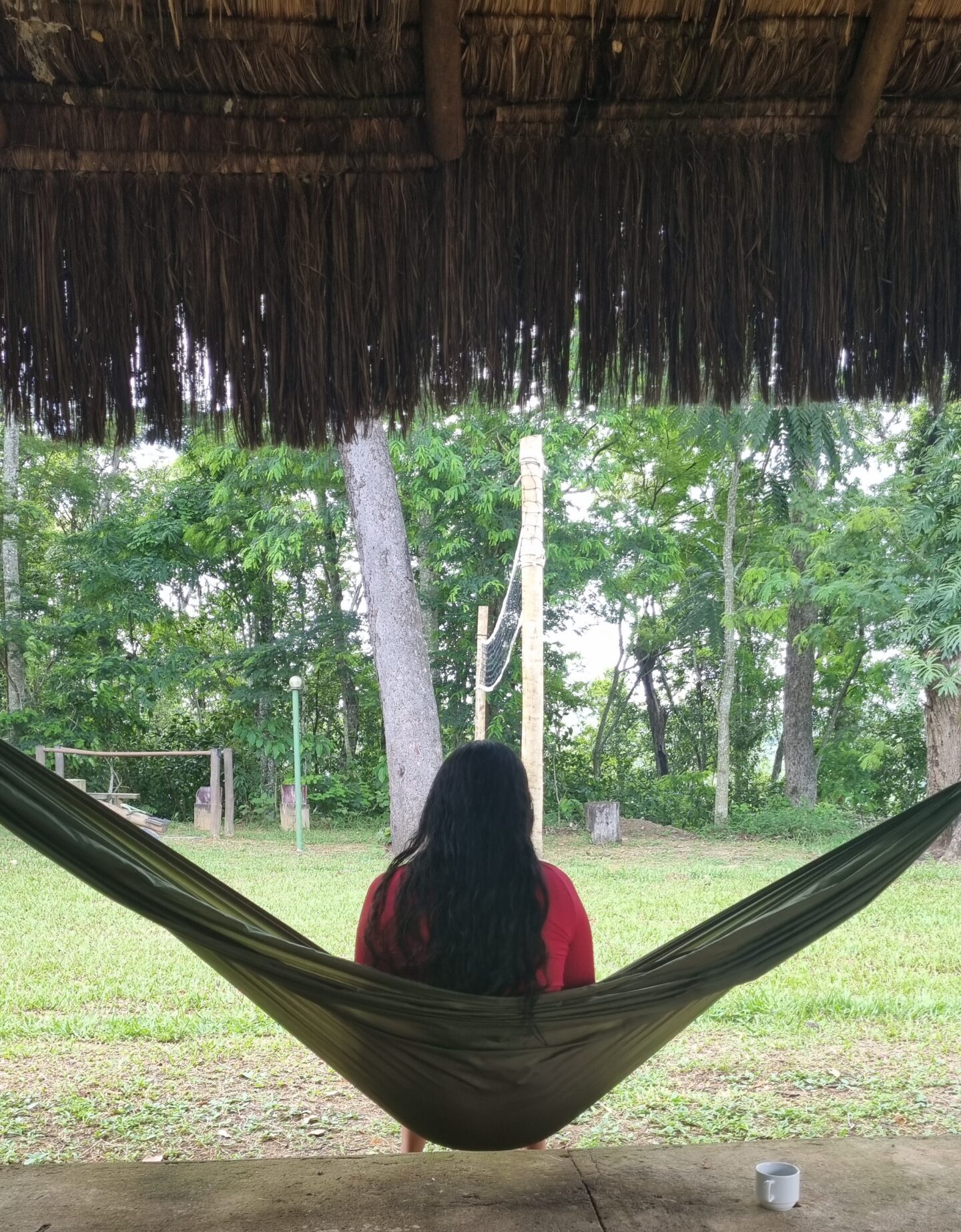Written by EDGE Fellow Mariam Curbelo Cruz
“Does anybody know what Saudade means?” I asked Gabriel in the group chat.
“Longing?” Someone answered.
But no, longing was not enough saudade is one of the most beautiful words in the Portuguese language. Saudade is feeling the present and past at the same time. It is the satisfaction of having lived a great experience and being full of everything that experience brings. It makes you smile. It makes you realise that your life has meaning. It is not about what has passed but about what’s left inside. I believe saudade is how we all feel now and how we all felt when taking the last plane home.
It is hard to define what the beginning of the course was. I can say it all started at the planes, or maybe it all started in São Paulo, where we began clicking as we met each other. It only took one taxi, an elevator ride, and getting a tree pruner onto a plane to start forming irreplaceable memories. As this is the story of many stories, some titles come to mind: “The Disappearance of the Flip Flops”, “Counting Geckos, the Full Experience”, “The Monkeys and Me”, “Rain Stories and Kitchen Tales”, “The Wolves of EDGE Village” and the “Revenge of the Wolves”. Nevertheless, as Gabriel García Márquez said, “Life is not what you lived but what you remember and how you remember it to tell the story.”
So, let’s agree to start our story in the middle of the night when we went through the doors of the “Parque Estadual do Rio Doce”, the 600 km2 we called home for 30 days. Let’s start the story of the “EDGE Conservation Tools Course 2024”.
On the 8th of January, our first day in São Paulo, we had already met three staff members: Davi, the Latin American Regional Projects Manager, who, from the sound of the working title, might appear as a very old and serious gentleman with eyes that make you nervous. In reality, he has one of the biggest and most reassuring smiles a supervisor can have, the kind of person you know you can trust to support your project for two years and learn from the experience. Caroline, the EDGE Projects Manager, whose efficiency and organisational skills would help us learn and thrive to be better. Finally, Carly, the EDGE Storyteller, saying she is the nicest person on earth, falls short, but I will stick to it, as no one can deny it. These are the first three people from EDGE we met, and there were more to come, but we already felt a great vibe. The other protagonists of the story were the Fellows: Monica and Andrea from Colombia, Adara from Venezuela, Susana and Ilse from México, John from Brazil, and me (Mariam) from Cuba. Later, we would meet Gabriel and Lucas from Brazil as well.
A plane took us to our final destination, the State Park and its visitor centre, which is fully equipped with classrooms, a kitchen, rooms, and hammocks (hammocks were the protagonists of more than one story and many, many break-time naps). We made our way into this pristine land on a long road that extended for 5 km. It started at the gates and ended up in a lake that will bring us back to life almost every day in the hot summer.
On the night of the 10th, Gabriel, Lucas and Rodolfo welcomed ten very hungry people to the visitor centre. Rodolfo is a former EDGE Fellow and one of the most valuable people on the course, not only because he was there to help us with any questions but because he was eager to do so. Moreover, his guitar-playing skills brought us joy every night. They helped us to a wonderful meal that would be the start of our fascination with exquisite Brazilian cuisine.
The next morning, on our first day in the classroom, we got our color-coded, perfectly organised schedule. The course was divided into four intense weeks: Project Management, Communication and Stats, Ecological and Social. Our daily routine, if you give it a quick look, was simple and enjoyable: wake up at 7 am, have breakfast until 8, classroom until 1, lunch, back to the classroom until six. But it was more than lectures or practical lessons; it was learning from each other’s experiences that made each hour spent in the classroom truly valuable. Another highlight is that the teaching methods were not the conventional ones of classes and blackboards, sitting and looking forward for hours. We had classes in the courtyard, on the grass, and talks in the dining room. We drew together, placed stickers, hunted beans from packages, made videos, and carried out character interpretation exercises, interviews, and dances. A bit of everything. This created an excellent atmosphere for learning.

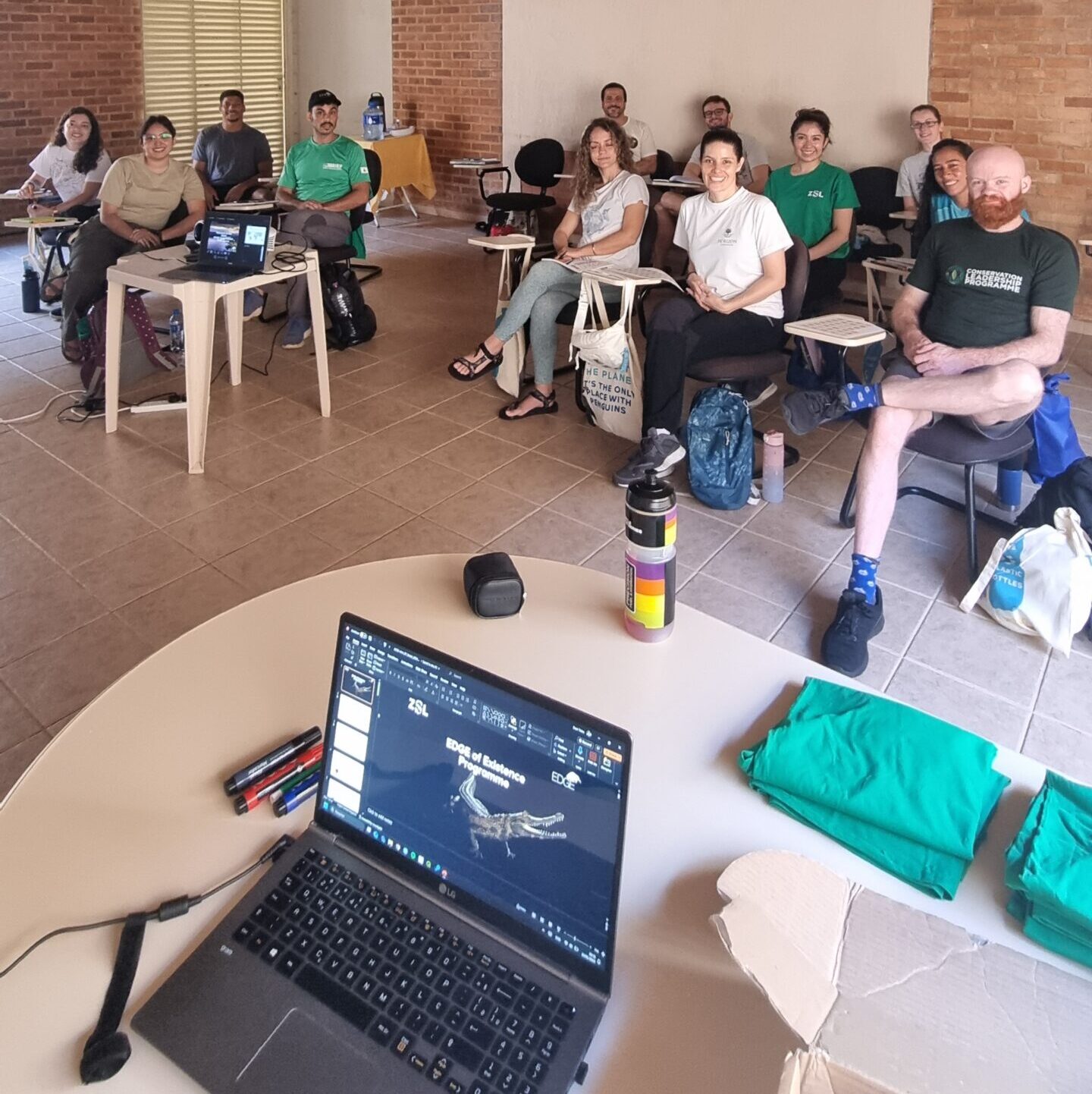
The first week of Project Management and planning opened our eyes to that world. Never had anyone explained to us in such detail how to make a log frame, organise the problems of our projects, and develop a clear and achievable objective and goal. We all worked on different species and came from very different backgrounds, but this benefited it rather than complicating the experience.
The days of statistics were a challenge for everyone, but Davi made sure to deliver the lectures in the kindest way possible. Communication also opened our eyes to the importance of clearly conveying the objectives of our project, the use of social media, and managing our time. Carly made us feel stronger about our communication skills and even gave us a charm (that will be with us for life) to hold when we get nervous at presentations and life.
From the second week onwards, more staff members started to join us. Rikki, the EDGE Research Fellow, looked intimidating at first, but he was very generous, patient, and eager to hear about our countries, species and projects. He also surprised us with his excellent taste in Latin music and was awarded the “Greatest Tan” award. Caleb, from Ghana, was not only an ex-EDGE Fellow and winner of every conservation prize you can imagine, but he also helped us understand African culture, as it was slower-paced than ours. He was an excellent narrator and the protagonist of many nights playing The Wolf (collaboration game). Jyoti (Asia Regional Projects Manager) from India was also at a glance from an entirely different culture but shared very similar values to ours. Finally, there was Ceri, a ZSL PhD student whose enthusiasm was contagious, and her fascination with all living beings was equally so.
The Ecological week with this new team was a thrill. We learned methodologies to estimate relative abundance, measure, count and more. The most insightful’, and the one that was the most work, was the gecko’s exercise. The task was simple, count geckos in a 10x10m parcel randomly assigned to our groups. We had full decisive power over what variables to measure and with what sampling method; the mistakes were ours to make. We looked for elusive little beings for five consecutive days in pairs, including one day in pouring rain. We could quit, of course, but we didn´t want to. Those with glasses on were not that effective that day, though. After all the counting was done, we had to analyse the main variables to predict geckos’ relative abundance. Spoiler alert, where you find light bulbs, you find geckos. It sounds like a simple exercise, but we got to practice all we learned in the weeks, from the sampling methodologies to R statistics. As an extra bonus, we learned that Lucas was the best gecko finder and that Jyoti had the best torch invented by humanity.
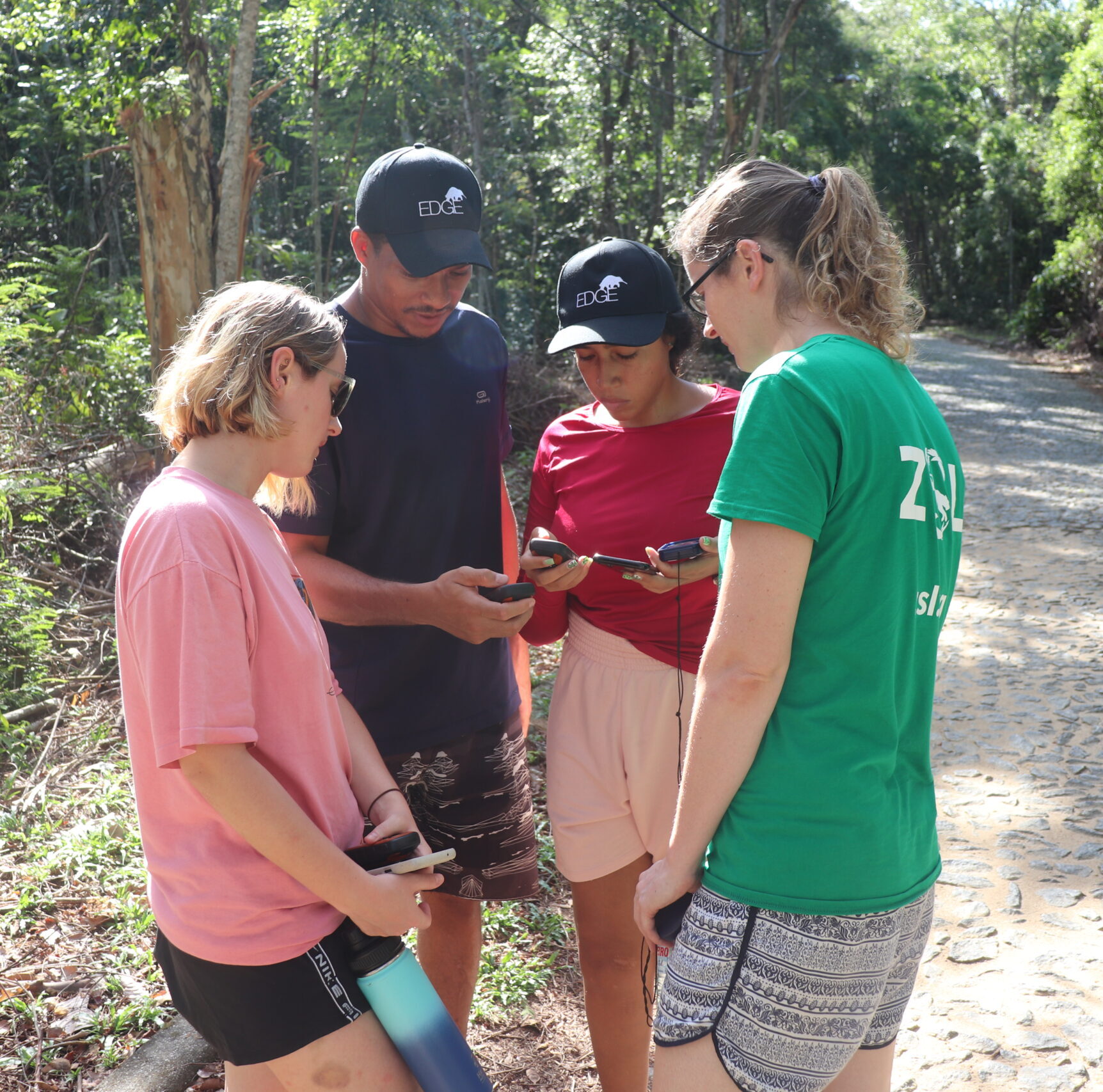

In the social week, Paul and Mica were the protagonists from the staff’s point of view. Paul is the EDGE Programme Manager and used to be the EDGE Social Scientist. He delivered his sessions from a very humanistic perspective as we discussed sensitive subjects like poverty and well-being. Mica is a vibrant woman from Argentina. She was an EDGE Fellow and has a great project called Quimilero around El Chaco in Argentina. Mica conveyed passion in every word, and I believe we all looked up to her.
Our evenings differed daily, either at the volleyball court or playing “gallito” or “peteca.” That game had such an impact that we all took a Peteca home, not as a simple souvenir, but for the London 2026 PETECA championship when we all meet again. The game involves hitting a shuttlecock over a net, like badminton, but with the hand. I must say that the Brazilians had a certain advantage in the game, and certain staff members also had a more suitable height to play (I say this with the least resentment in my voice possible). The lake and the lookout were also afternoon and night favourites when the rain allowed it. Some nights we would just gather to tell stories, happy stories, sad stories, and scary stories from each of our cultures. At the end of the day, stories are what unite people.

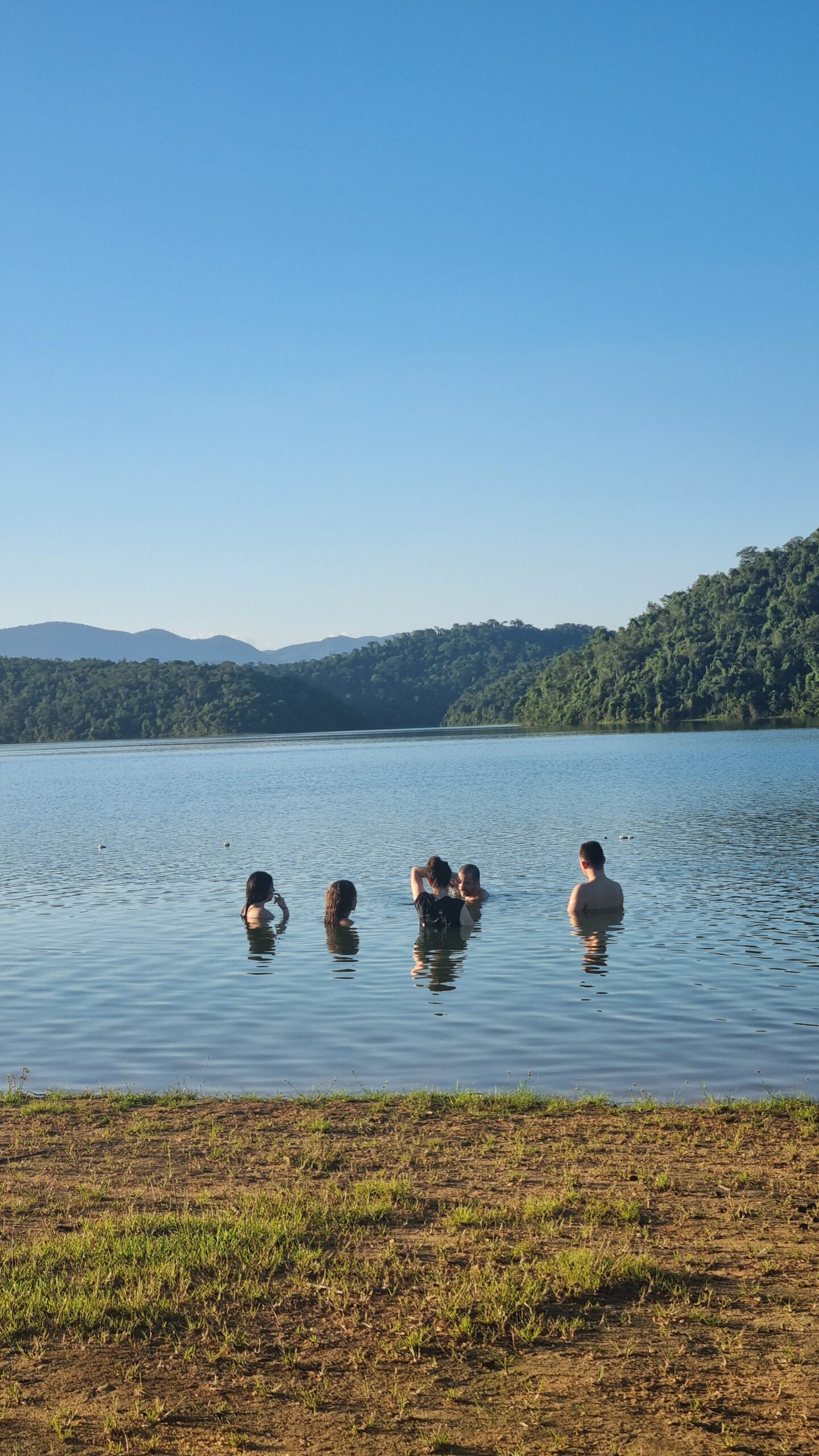
Obviously, there is a paragraph dedicated to the kitchen (multiple dishes from Brazil whose names I have shamefully forgotten) Açaí and pão de queijo come to mind. I think after our departure, there was a national crisis of pão de queijo because we couldn’t stop eating them. Oh! Brigadeiro, which I can only describe as heaven in your mouth. All of these were made by an amazing kitchen team. Chef Alan Rafael, Dona Conceição, Hubberdan, and Renata made every breakfast, lunch, and dinner a true delight. They went above and beyond, so we could enjoy a different meal every day, including traditional dishes and vegan and vegetarian options. We also had not one but two barbecue days!
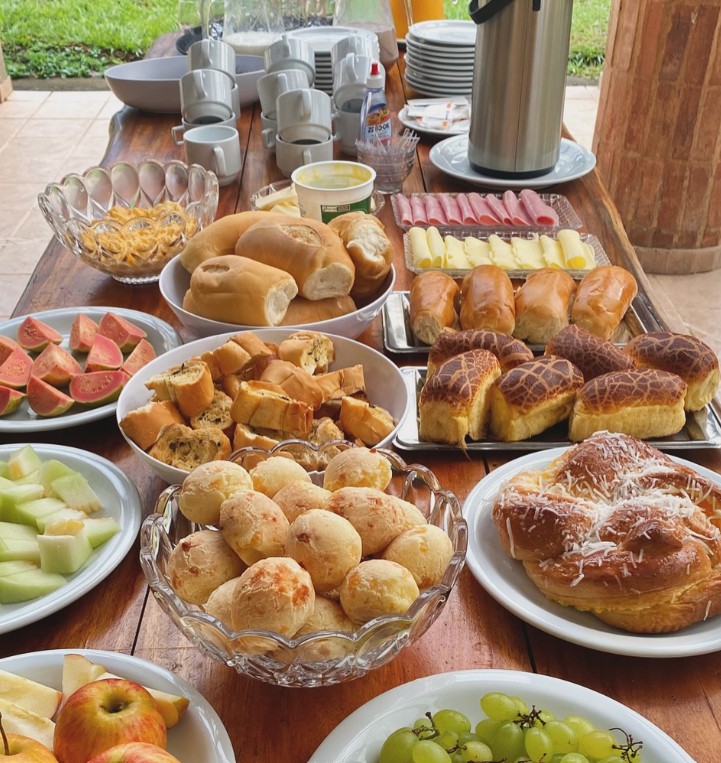

Our experience wouldn’t have been complete without Tião, the visitors’ centre’s custodian, who ensured everything was working smoothly. His music and smiles brightened our nights. He even shared scary stories with such realism that from that night on, there was always a light on in the rooms of the most scared ones (meaning me).
One of the reasons the EDGE course is so comprehensive, and something I take as lifelong learning, is constant feedback from the students. We were always giving feedback on the lessons, using a post-it system that the staff later analysed to incorporate into the next course. Over the past ten years, the EDGE Fellows have iteratively improved the course and experience for their successors, something we are not accustomed to in education.
I see several things when I close my eyes and think of Brazil and the park. I see a sunset with storm clouds in the distance. I see Rikki sunbathing. I see Gabriel, Davi, Lucas, and Caleb playing Peteca. I see Ilse, Andrea, and Susana chatting in the hammocks. I see Caroline with a flushed face, returning from a run. I see Carly smiling and taking photos of us. I hear Dona Conceição singing sweetly from the kitchen. I hear Tião’s speaker in the distance. I hear Rodolfo with his guitar. I see Davi and Mica running after a ball, discussing whether Maradona or Pelé are the greatest football players in history. I see Adara sitting on one of the kitchen stools, conversing in “portuñol” with everyone. I see Jyoti walking around the camp. I see John doing exercises. I smell the aroma of many spices in hot oil. I feel the earth of the lake under my feet. I see the lake system from the park lookout with lightning in the distance.
I could say that only saudade fills my heart, but so does hope. I have hope that if we work together, we can truly accomplish the big things needed knowing that conservation has a future in the hands of so many brilliant young leaders. Although it is almost a corporate word nowadays, networking is at the core of good conservation work when done right. My hopes were fed for 30 days. My mind grew with tools. My brain hurt from so many abilities learned in so short a time. When I set foot in my homeland, I was hopeful again, with a newly acquired strength to face life and to fight for conservation and conservationists.
Mariam Curbelo Cruz
2024 EDGE Fellow
